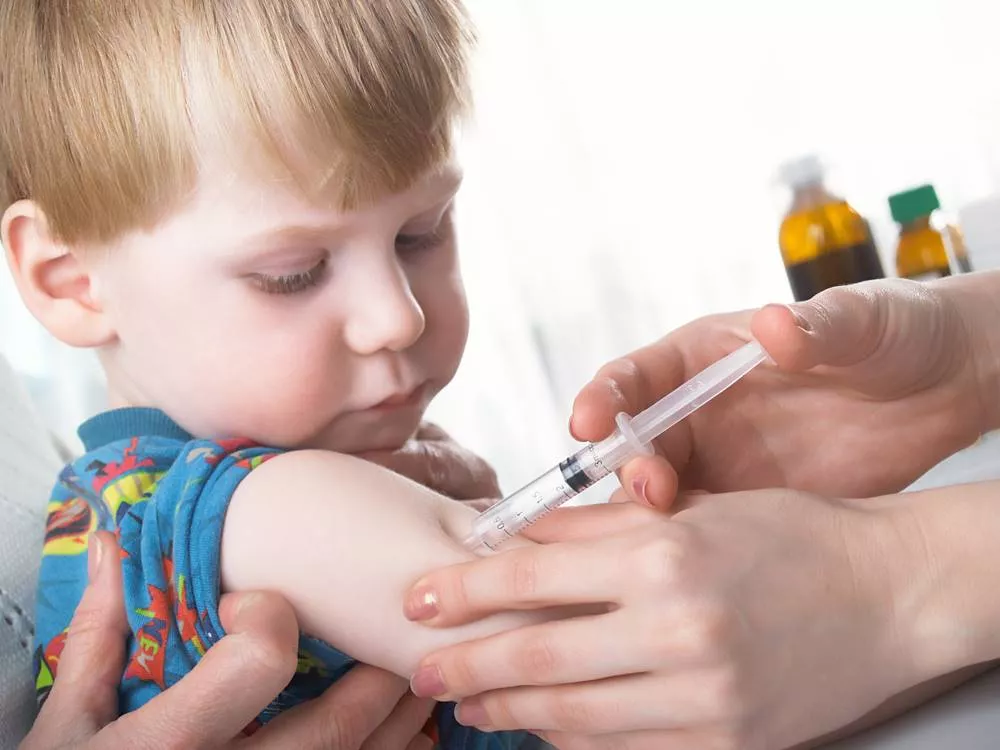
Following a resurgence of the once rare disease, Royal College of Paediatrics and Child Health (RCPCH) has updated recommendations on the management of children with viral respiratory tract infections in hospital settings to include measles. Measles is a highly infectious disease with potentially serious complications, especially for the very young.
The guidance, which is used to maintain services and reduce the risk of transmission during surges of RSV, influenza and other respiratory viruses, has been updated this year to include measles amid a number of break outs across the UK. The guidance now outlines the main symptoms of measles in children, which many paediatricians would not have seen previously in their careers and reminds health care professionals to check the immunisation status of all children presenting to hospital. RCPCH and Royal College of General Practitioners (RCGP) have also produced a poster advising healthcare professionals to ‘think measles’ when treating children, young people and anyone from an underserved community. You can find the poster here.
Data published by the UK Health Security Agency (UKHSA) shows there has been a sharp rise in measles cases. NHS data also shows that no vaccines met the 95% coverage target as set out by the World Health Organisation (WHO) in England, with Measles, Mumps and Rubella (MMR) coverage now at its lowest rates since 2010-11. The UK is now seeing a devastating resurgence of virtually eliminated life threatening diseases, such as measles. Evidence also shows that lower socioeconomic status was associated with lower coverage. Inequalities in immunisation for a given population group can be complex to describe and may vary between areas. Community, institutional, and policy factors, as well as the health beliefs and knowledge of individuals and within families may lead to inequalities in vaccination.
Amidst this worrying trend, RCPCH are calling for the swift publication of the overdue national vaccination strategy. The strategy, which the government consulted healthcare workers and the public on last year, aims to improve vaccination services for local populations by addressing issues around accessibility, misinformation, and distrust of vaccines.
RCPCH President, Dr Camilla Kingdon, said:
Having to consider measles in our national guidance for the first time in decades is a disappointing but necessary move. Vaccination coverage for children under the age of 5 is now the lowest it has ever been in the past 10 years. We are already starting to see the effects of this with measles outbreaks occurring in London, Wales and Leicester.
Many paediatricians I know live in fear of potential measles outbreaks this winter. The winter period is always an extremely tough time for all health care professionals, with high surges in RSV and influenza, as well as circulating Covid-19 and Group A Strep. To add another highly contagious and dangerous disease into the mix would be disastrous and could bring our already fragile system to its knees.
We now find ourselves once again asking the Government, where is the long-awaited vaccination strategy? The UK Government must acknowledge these low uptake figures and focus its attention on ensuring equal access to vaccinations across all regions and socioeconomic groups. Of course, vaccine hesitancy is an issue, but there are real problems with accessibility that are also at play. We know that there are significant inequalities in vaccine uptake by ethnicity, deprivation and geography. This has to be addressed.
RCPCH Office for Health Services, Dr Ronny Cheung, said:
Due to measles once again circulating in the UK, our national guidance recommends health care professionals check the immunisation status on all children presenting to hospital and promote the MMR vaccination to all unimmunised children. The guidance also takes into account how contagious measles is, especially in hospital settings and recommends that if an unimmunised child presents with symptoms of measles, they be immediately isolated and tested, all whilst wearing appropriate PPE.
The good news for parents and carers is that the MMR vaccine is highly effective with a very good safety record. Two doses are needed for best protection. If your child hasn’t had a first or second dose, or you are just not sure what they have and haven’t had, we strongly encourage you to contact your GP surgery to ask and arrange. You can also check your child’s personal child health record – known as the red book.
Be assured that it is never too late for your child to get these critical vaccinations, and your health practitioner would be happy to discuss any questions or concerns you might have.
Notes to Editors
- On Thursday 28 September, NHS Digital published their Childhood Vaccination Coverage Statistics - England, 2022-23. The report showed:
- No vaccines met the 95% target as set out by the World Health Organisation (WHO)
- Vaccination coverage decreased this past year, with a decline in 12 of the 14 vaccines reported in 2022-23
- MMR1 coverage at 5 years decreased to 92.5%, the lowest level since 2010-11
- MMR2 coverage at 5 years decreased to 84.5%, the lowest level since 2010-11
- RCPCH vaccination in the UK – position statement
- National Immunisation Programme: health equity audit 2021









